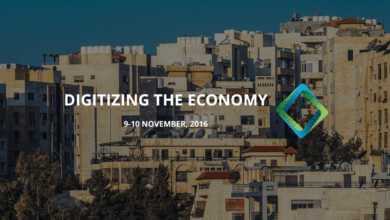CoinMENA Raises $9.5M Seed Fund
CoinMENA Crypto exchange enters into an agreement with the Dubai World Trade Centre

Bahrain-based CoinMENA has raised $9.5M in its first seed funding round led by BECO Capital, Kenetic, Arab Bank Switzerland, Bunat Ventures, Alameda Research, Rua Growth Fund, and Girnas Capital.
In addition to a number of select global angel investors participated in the round recorded.
CoinMENA was launched in early 2021 by Dina Saman, Talal Tabbaa, and Yazan Barghuthi. It was founded primarily to address a market gap that existed for easy and safe access to crypto investing.
Today, as a fully regulated, onshore crypto exchange licensed by the Central Bank of Bahrain, CoinMENA’s sign-up process takes less than a minute and can be performed on its simple, seamless, and highly intuitive mobile app, which is designed for both beginners and professional traders.
As recorded in our Q3 2021 EVM FinTech Venture Investment Report, a remarkable part in FinTech’s 100% YoY growth in funding across MENA was played by pioneers in Blockchain technology, Open Banking, Cryptocurrency, and international exchange platforms.
VCs seems interested in backing this FinTech exploration into the world of virtual currencies and decentralizing accessible investment opportunities, with major rounds closed by the likes of Fintech Galaxy, BitOasis, Tarabut Gateway, Sarwa, and Baraka in 2021 YTD.
CoinMENA hasn’t only successfully bridged the gap but has also become the go-to exchange, known for its prompt transactions, wide variety of assets, excellent customer service, and easy-to-use mobile app. Most recently, CoinMENA entered into an agreement with the Dubai World Trade Centre to build the next blockchain and crypto hub in the UAE.
Commenting on the investment, CoinMENA’s co-founders stated “With growing awareness about crypto-assets and their transformative potential, appetite from both retail and institutional investors in the MENA region is growing at a rapid pace. Our strategic capital partnerships provide support for our vision to increase the adoption of crypto assets in the region in a regulated and seamless manner. We believe that this is a positive outlook for the crypto assets sector over the coming years both locally and globally.”
CoinMENA markets
CoinMENA exchange services are currently available to residents of Bahrain, United Arab Emirates, Saudi Arabia, Kuwait, and Oman, with a view to expanding to other countries in the MENA region.
Jehan Chu, Founder of Kenetic highlighted the formidable potential for the Bahrain-based blockchain pioneer “CoinMENA is positioned for explosive growth, and Kenetic is excited to lend our extensive experience and deep network to support them as they provide superior crypto liquidity and user experience in a new era of digital finance throughout the MENA region.”
CoinMENA’s investor BECO Capital, the technology-focused venture capital, has been keen on spotting major innovations with a track record of backing MENA’s 3 Unicorns Swvl, Kitopi, and Careem. With this investment and the insurmountable experience onboarded by the network of partners and stakeholders, CoinMENA will be able to expand its market presence across the MENA region.
Dany Farha, Co-Founder and Managing Partner of BECO Capital concluded “We had been searching for a while for the combination of the strength of the team and depth of vision that the team at CoinMENA set out to build. We are very excited to partner with this stellar team in delivering financial inclusion, investing, and saving in a crypto native manner, in a hyper-local manner, all whilst being regulated and adhering to the highest levels of governance and compliance for all stakeholders.”



